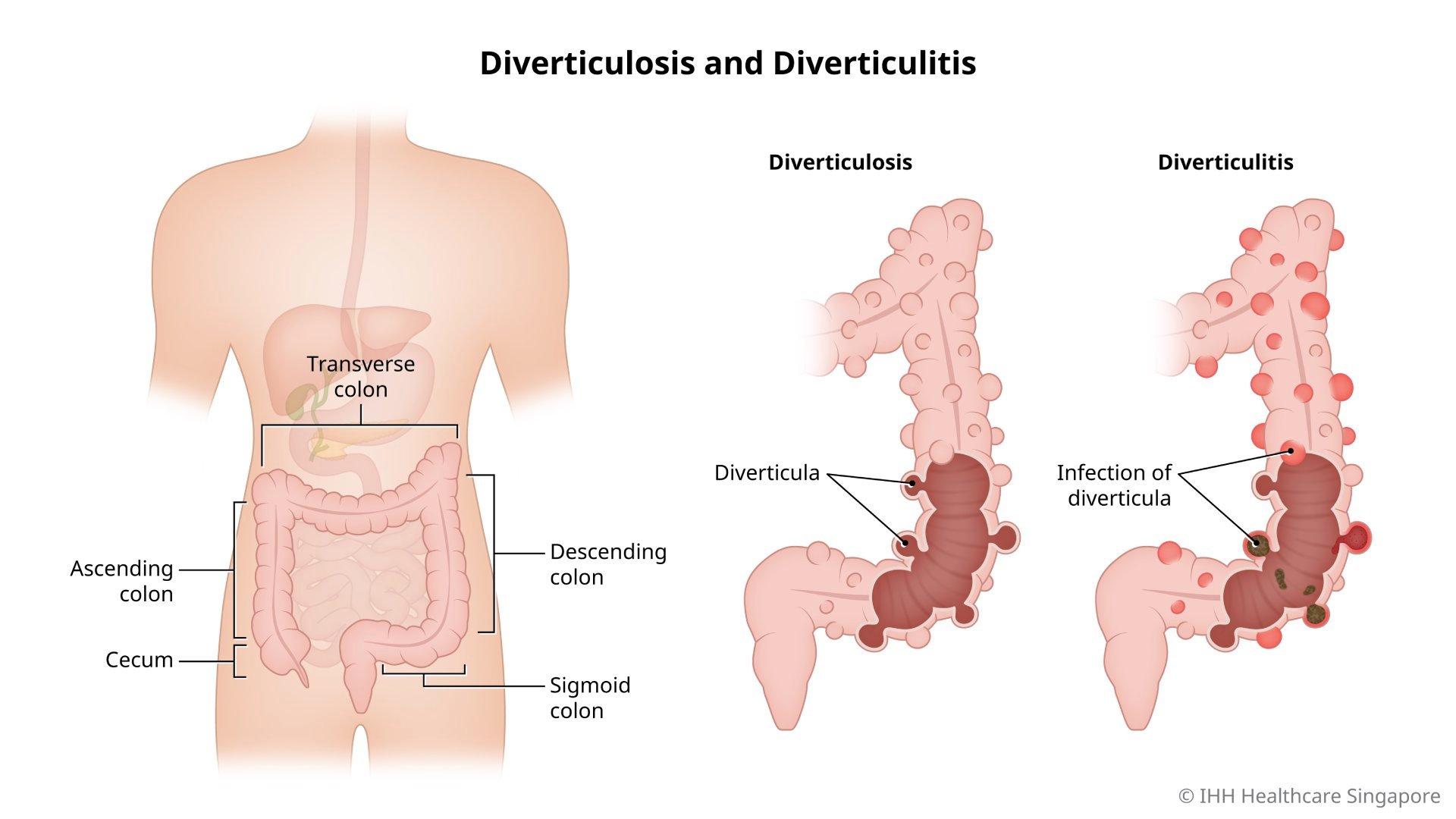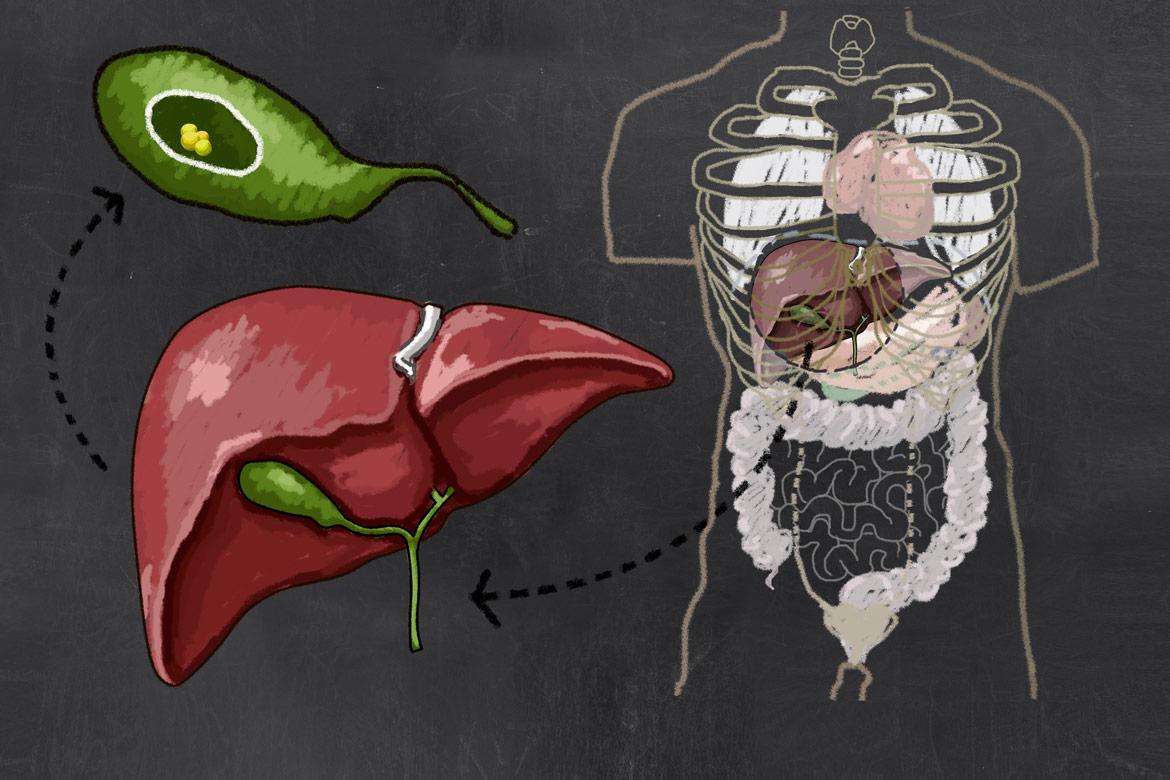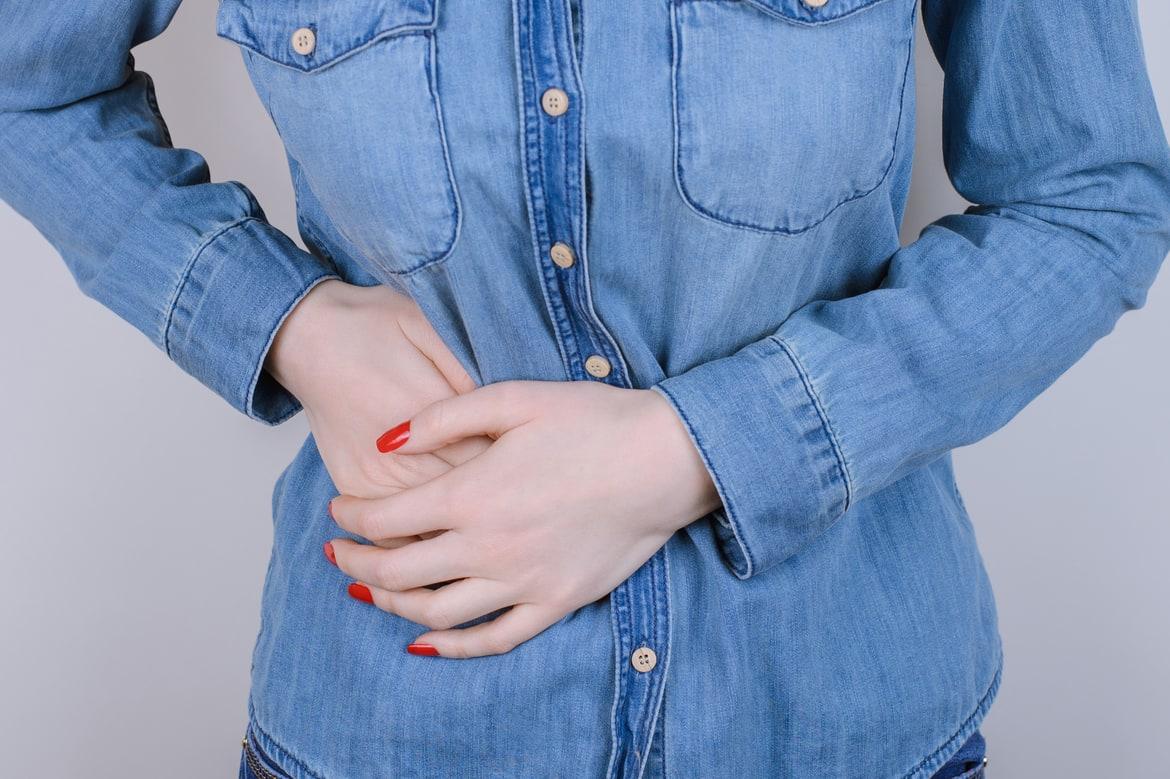-
-
Featured Care Areas

Diverticulosis & Diverticulitis
What is diverticular disease?
Diverticular disease, also known as diverticulosis, occurs when small pockets or bulges (diverticula) develop within the lining of the large intestine (colon).
Most people with diverticular disease (75 – 80%) have no symptoms. However, some people may develop an infection (diverticulitis) or bleeding from the diverticula.
What are the symptoms of diverticular disease?
Symptoms of diverticular disease include:
- Abdominal pain and fever, which may indicate diverticulitis.
- Constipation, diarrhoea, or both.
- Large amounts of blood in the stools.
What are the causes of diverticular disease?
Diverticular disease can develop due to multiple factors, including:
- Inadequate fibre intake
- Age
- Alterations in the elastic fibres of the colon
What are the risk factors for diverticular disease?
The exact cause of diverticular disease is not entirely known, and it is likely due to a combination of various risk factors including:
- A diet low in fibre (especially insoluble fibre) and high in red meat
- Intestinal motility disorders
- Abnormalities in the colonic wall structure
- Inflammation
- Colonic microbiota
- Obesity
- Genetic predisposition
It is believed that these factors lead to an increase in pressure within the lumen of the digestive tract, resulting in the formation of diverticula.
What are the complications and related diseases of diverticular disease?
Complications associated with diverticular disease include:
- Diverticulitis, which may lead to colonic perforation, abscess formation, and fistula formation between the colon and other organs
- Blood in the stools
- Recurrent abdominal pain
- Bloating
- Changes in bowel habits in the absence of diverticulitis (symptomatic uncomplicated diverticular disease)
This page has been reviewed by our medical content reviewers.
Need help?
For enquiries, please call
+65 6575 7575
For appointment bookings, please WhatsApp
+65 8111 9777






